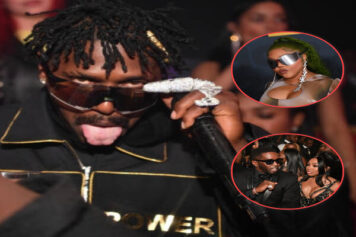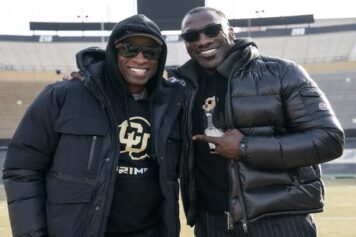Raphael Saadiq has been at the pinnacle of R&B and soul for the over three decades. The former Tony! Toni! Tone! frontman's classic vocals and masterful production talents have been the envy of both legends and contemporaries alike. His works featuring the eclectic sounds of Ummah, the contemporary funk/soul collective known as Lucy Pearl, as well as each of his five solo albums are considered must-haves for any aficionado of good music. His collaborative efforts have helped spawn hits from such giants as Mary J. Blige, Stevie Wonder, Elton John, Whitney Houston, Rick Ross and Q-Tip, to name a few. His ear seems forever affixed to the groove of modern music in a manner that very few can match. And recently, with reinvention, he has taken talent to the big screen becoming instrumental in lending aural authenticity to the Kasi Lemmons directed film Black Nativity, while producing music for Spike Lee's kickstarter sponsored vampire movie The Blood of Jesus.
To break it all down, The Shadow League sat with Saadiq for an honest chat ranging from Drake and Kendrick Lamar to Bach and The Beatles.
The Shadow League: Scoring films seems like a natural progression for someone who's been in the music business as long as you. It's definitely good timing with the way things have changed.
Raphael Saadiq: Yea. Trying to figure it out. I mean it’s not really the industry. It’s the people trying to figure it out. I think music is okay. I just think the industry is really going through it a bit. There is always somebody playing good music somewhere. The industry used to be the people that delivered it to you. They’re just not the messengers anymore. The messengers are people singing at festivals, people making music at home, people just doing it on their own. The true messenger is the music.
TSL: What are you listening to? What’s on your phone or in your CD player?
RS: I mean I go back. I listen to Kendrick. I burned that out quick. I’ll probably be listening to my new record. Other things I’ll be listening to is like Deacon Blues, Steely Dan.
TSL: Classic.
RS: I listen to Black Ivory, the Cocteau Twins. I kind of jump from some Bob [Marley], some Black Nativity, some of the Beatles, some Beach Boys, Some BT Express. Alice Russell. Albert King….
TSL: Nice. You look at music today and you say music is good. But you’re kind of old school. What do you miss? Do you ever go down memory lane like, 'I miss the good old days?'
RS: No, I don’t miss them cause I make them for myself. It’s like this thing about being a chef to everybody. If you can cook, you can eat what you want to eat at any time. I felt bad for people that don’t make music because they had to suffer a little bit more than me. I don’t have to suffer. I can make what I want. And I can listen to it, I can go find it. Cause everything wasn't hot back in the day, you know what is good. Now everything has to be hot.
TSL: What do you mean?
RS: Like in music it has to be hot, this gotta be hot, that has to be hot. It just has to be good. And I think everybody focusing on being the hottest artist, they’re suffering because you just have to focus on being good. Everybody can’t be what you call hot. But you can be good and become great.
TSL: What would you say to an artist on the come-up about how to be good?
RS: You have to follow the ones that was good. You know what they say? You want to be like an amateur, study from amateurs. You wanna be like the great ones, do what the great ones did. You have a huge canvas to look at. It’s huge. If you choose to close your eyes and not look at what happened before you… [There are] the great ones. Like artists up in the 60s. If you go back and look at Bach, they were always inspired by something. Not that you have to do any of the same things that they’re doing. I mean, when I look at like a Drake, or I look at rappers like A$AP Rocky, you know just that generation, I can find some great ones in like two or three of those MCs. It’s like, you look at Drake. Drake has really studied all the New York Hip Hop, but then he found a way to make it his and make it work for him. Same as Kendrick Lamar, there’s a lot of music around Kendrick Lamar. If you listen to it, I know people that play for him. They all jazz kids. They all went to school. It’s a high school here [in California], super jazz school. Dudes study. [There are] musicians around him. So I just think people have to do their homework, and you’re only going to stand out if you want to do this. I mean, some people just want to use this as a paper route, it’s just something they want to do for a year until they do something else. And if that’s what it is, if you just want to be in the music for a year or two, listen to executives.



